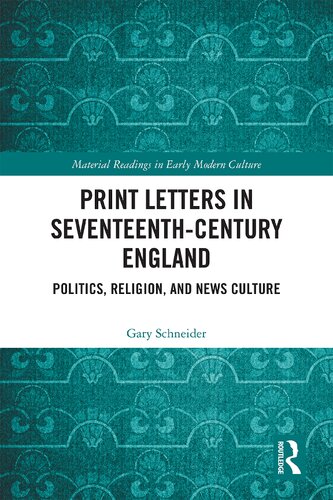

Most ebook files are in PDF format, so you can easily read them using various software such as Foxit Reader or directly on the Google Chrome browser.
Some ebook files are released by publishers in other formats such as .awz, .mobi, .epub, .fb2, etc. You may need to install specific software to read these formats on mobile/PC, such as Calibre.
Please read the tutorial at this link. https://ebooknice.com/page/post?id=faq
We offer FREE conversion to the popular formats you request; however, this may take some time. Therefore, right after payment, please email us, and we will try to provide the service as quickly as possible.
For some exceptional file formats or broken links (if any), please refrain from opening any disputes. Instead, email us first, and we will try to assist within a maximum of 6 hours.
EbookNice Team

Status:
Available5.0
9 reviewsPrint Letters in Seventeenth-Century England investigates how and why letters were printed in the interrelated spheres of political contestation, religious controversy, and news culture―those published as pamphlets, as broadsides, and in newsbooks in the interests of ideological disputes and as political and religious propaganda. The epistolary texts examined in this book, be they fictional, satirical, collected, or authentic, were written for, or framed to have, a specific persuasive purpose, typically an ideological or propagandistic one. This volume offers a unique exploration into the crucial interface of manuscript culture and print culture where tremendous transformations occur, when, for instance, at its most basic level, a handwritten letter composed by a single individual and meant for another individual alone comes, either intentionally or not, into the purview of hundreds or even thousands of people. This essential context, a solitary exchange transmuted via print into an interaction consumed by many, serves to highlight the manner in which letters were exploited as propaganda and operated as vehicles of cultural narrative.